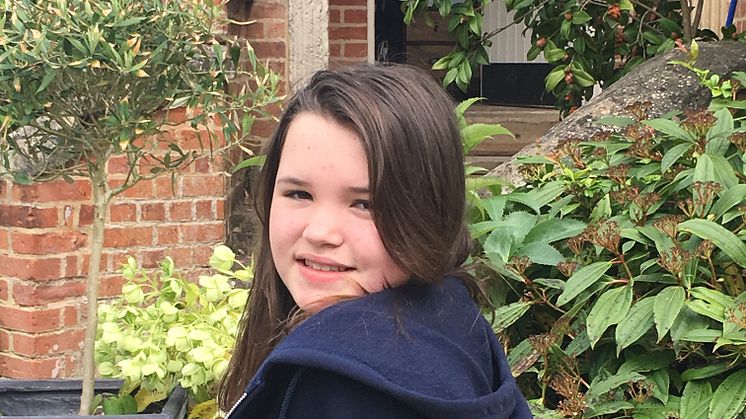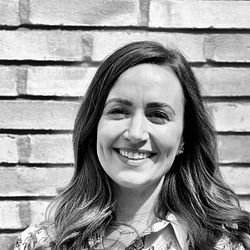
Press release -
Oxford family urges parents and families to spot the signs of stroke in children
The Redfern family is urging parents and young people in Oxford to learn about the signs of childhood stroke as a new guideline for parents launches today.
Maddie had a stroke soon after her third birthday in April 2008. She went to bed as normal the night before but woke up looking really tired and sleepy.
Mother and former part-time charity fundraiser Claire, 42, said, “She seemed a bit odd and was barely responsive but I just put it down to her being lethargic from sleep. An hour past and she was still the same. Not until when Maddie saw her best friend and didn’t respond at all did it send alarm bells ringing in my head.”
Concerned, Claire called 111 she was told to go to hospital so her husband drove the family to Kingston A&E.
“By this stage Maddie was very floppy and couldn’t speak, stand or sit up. We were asked if she had had a fall.”
A consultant told us they thought Maddie had stroke so we were transferred by ambulance to St Georges. On Monday, two days on, the MRI scan at St George’s Hospital confirmed a stroke. One side of her face had dropped.
She was diagnosed as hemiplegic as she had totally lost the use of her rightside. She was in hospital for the next couple of weeks.
Claire’s husband had left her six weeks before Maddie’s stroke. A few years later she got made redundant from her job.
Claire said, “The staff were brilliant. They took fantastic care of my little girl.
“I couldn’t sit her on the sofa or put her in the car seat. It was heart-breaking. In hindsight, the speech and language therapy, physiotherapy, multiple medical appointments – they were all emotionally draining. But at the time, I was so consumed in the moment that I just got on with it. I had to be strong for Maddie.”
Claire had a ventouse-assisted normal delivery and Maddie had met all her milestones so far.
Maddie is now 12, a champion swimmer and dotes on her 17-month-old baby brother. She goes to a regular school and needs extra support with Maths and English. Maddie wears a splint in her –right leg to assist with her walking and can get tired very easily.
Maddie lives in Oxford with her mother, step father and her half baby brother.
Claire said, “No one knows what tomorrow might bring. But looking at Maddie and seeing how far she has come from that ill-fated day almost a decade ago, she fills me with hope and dreams for a bright, sunny future!”
The Guideline, produced by the Royal College of Paediatrics and Child Health (RCPCH) and the Stroke Association, covers diagnosis and rehabilitation and includes signs for spotting strokes in children:
Most children experiencing a stroke will have symptoms recognised by the FAST test: Facial weakness, Arm weakness, Speech problems, Time to call 999
Some children and young people may complain of a headache and others may have seizures (fits) at the time of the stroke. New and sudden onset of vertigo, dizziness, neck pain or neck stiffness are also sometimes signs that a child or young person is having or has had a stroke.
Nausea/vomiting, fever or loss of consciousness can also be signs of a stroke in children, so do not discount these.
Dr Vijeya Ganesan, a paediatric neurologist and spokesperson for the Royal College of Paediatrics and Child Health, said: “Although much less common than in adults, stroke is a devastating childhood illness, leaving permanent effects on most affected children. Early recognition is important to direct children towards rapid diagnosis and treatment. Many children with symptoms or signs that suggest stroke may have other serious neurological disorders and could also benefit from the changes in approach recommended by the guideline. The guidelines also provide comprehensive information on how to best manage the long term needs of children, particularly rehabilitation.”
Juliet Bouverie, Chief Executive of the Stroke Association, said: “Childhood stroke is often extremely frightening and stressful for children and their families. Far too few people realise that a child can have a stroke, which means diagnosis and treatment can take longer than for older patients. Whatever age you are, when stroke strikes, quick diagnosis is vital.”
To find out more and download the guidelines visit www.rcpch.ac.uk/stroke-guideline
Topics










